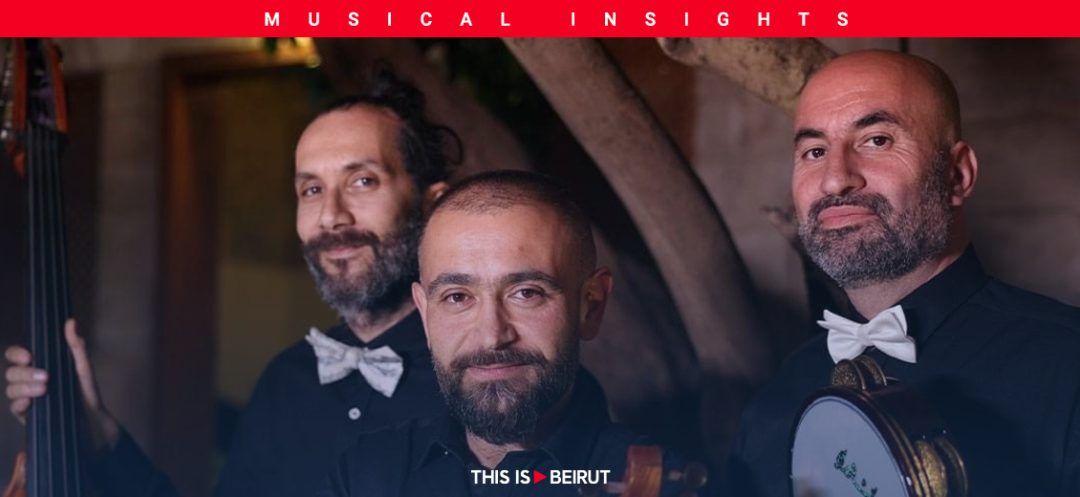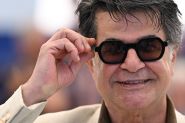
The enthusiasm of the audience on January 9 spoke volumes about the success of the second concert of the year at Beit Tabaris. Despite the various uncertainties that Lebanon is going through, the packed hall was the scene of an interesting spectacle. The melodies of the oud, the pulsations of the double bass and the effervescence of the percussion blended together harmoniously, offering listeners a musical experience that goes beyond classical boundaries.
A ravishing smile lit the face of Zeina Saleh Kayali that Tuesday, January 9th. Her expression, a mix of surprise and pride, shone as she contemplated Beit Tabaris, the artist house she founded in 2022 against all odds, and which has now reached its full capacity in the second concert of this new year. Tireless, driven by an authentic passion for music and endowed with an increasingly rare open-mindedness in a world confronted with extremism, the Lebanese-French musicographer has managed, with perseverance, to unlock the doors to success over the past few years. Although some of her views on the role of harmony in Levantine music (both artistic and popular) have sparked controversy, it is undeniable that Zeina Saleh Kayali remains today one of the faithful guardians of Western art music in Lebanon. This comes at a pivotal and critical moment when Lebanese institutions, once considered musical benchmarks that were supposed to defend this art, have regrettably opted for its sacrifice on the altar of personal interests.
Full House
Supported by the French Institute of Lebanon and generously backed by patrons, Beit Tabaris is primarily dedicated to the promotion of Western art music, where every musician seeking the support of its founder finds a stage conducive to expressing their talent. On January 9, despite ongoing political, security, economic and even meteorological uncertainties in Lebanon, the music salon was packed. According to the organizers, over 100 listeners came to attend this concert, titled “Oud Without Borders,” exceeding the maximum capacity of the space. Some people were forced to stand, but no matter. The essential thing is to let oneself be carried away by the intoxicating flow of music. That evening, once again, art united spirits, gathering the scattered fragments of the broken social fabric and offering a temporary refuge to those who chose to surrender to it.
Smoke and Mirrors
This lyricism would hardly be noteworthy if it were just smoke and mirrors, without its musical counterpart. However, the universally appreciated charisma of the organizer is associated with a performance of great subtlety and generosity on the part of the three interpreters of the evening: Samir Nasr Eddine on the oud, Jack Estephan on the double bass and Bahaa Daou on percussion. This trio was evidently sufficient to construct a lush sonic world where the melodies of the oud, the harmony of the double bass and the rhythms, sometimes Levantine, sometimes Western, sometimes Latin, eventually merged. Such a juxtaposition remains indeed interesting in the context of experimental music but is part of a growing, somewhat regrettable, trend towards a caricatural Westernization of Levantine music.
This clearly transpired in the oudist’s statement during the concert that “the oral transmission of Levantine music over the centuries has hindered its polyphonic development.” Such a claim contributes to the marginalization of traditional modal monodic music in favor of European tonal harmonic (polyphonic) music, falsely and abusively associated with the notion of progress. This exogenous modernism (that is, borrowed from another culture) ultimately leads to the supremacy of creole (or hybrid) consumer music at the expense of indigenous music. It can never be repeated enough that this musical creolization rests on two incompatible musical systems and would be similar in its anecdotal nature to the famous Lebanese “Hi! Kifak? Ça va ? Ciao.” We will not push the analysis of this practice further, as it has already been amply detailed in a series of articles published on This Is Beirut.
Heterogeneous Potpourri
The concert presents an eclectic mix of Levantine music, Western music and Orientalist elements, creating a somewhat heterogeneous potpourri. The entire concert centers around the compositions or arrangements written by Samir Nasr Eddine. On a purely aesthetic level, the trio engages in a pleasant exchange of colors and timbres. Jack Estephan fills the space with the dense sonority of his mastered art of pizzicato (for novices, this implies plucking the strings with the fingers of the right hand instead of using the bow), skillfully ensuring maximum projections. A commendable roundness of sound emanates from the oud, where the musician feels in perfect harmony with his instrument. He embarks on a series of improvisations, highlighting the art of taqsim which he unquestionably masters. The authenticity of the oud is thus emphasized in these passages, while at other times, the instrument could be more likened to a guitar navigating on pentatonic scales, often imbued with blues. The percussionist shows an unwavering dexterity, although some interpretative choices would have benefited from further refinement.
At the end of this superb evening, an undeniable conclusion stands out: one must rush to these musical moments that Zeina Saleh Kayali carefully organizes at Beit Tabaris. Particularly, and with great impatience, we look forward to the next concert scheduled for February 21st, especially since it will mark the return to the stage of the virtuoso pianist, Robert Lamah, whom the press had called in 1970 the “new Lebanese Mozart.”
Read more




Comments